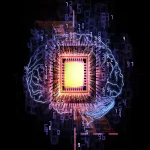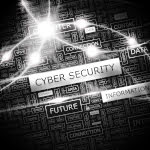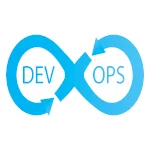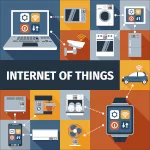
In this article, we list 60 Coursera computer science courses that are FREE and available online.
Computer Science is a continuously evolving field. Especially in the last decade, computers are literally around us constituting the backbone of technological innovation. From powerful devices on the palm of our hand to refrigerators, TVs, cars, detecting systems, and clothing. Thus, there is a great demand for computer scientists in order for societies to benefit and achieve even greater development in the coming years.
In the following list, you can find the best online Udemy courses, from 6 distinct fields: Data Structures and Algorithms, Artificial Intelligence, Networks, Cyber Security, DevOps, and Internet of Things.
Coursera Computer Science Courses
Table Of Contents
Data Structures and Algorithms
Data Structures and Algorithms are a key part of computer science. Data structures are used to hold data while algorithms are used to solve the problem using that data.

- Geometric Algorithms – FREE
- Algorithms, Part I – FREE
- Algorithms, Part II – FREE
- Algorithms for DNA Sequencing – FREE
- Data Structures and Performance – FREE
- Unordered Data Structures – FREE
- Ordered Data Structures – FREE
- Approximation Algorithms – FREE
Artificial Intelligence
The development of artificial intelligence is the future of computer science. It is an enormous field consisting of various tools and platforms.

- Computer Simulations – FREE
- AI Workflow: Machine Learning, Visual Recognition and NLP – FREE
- Motion Planning for Self-Driving Cars – FREE
- Control of Mobile Robots -FREE
- Prediction and Control with Function Approximation – FREE
- Introduction to Self-Driving Cars – FREE
- Visual Perception for Self-Driving Cars – FREE
- Computational Neuroscience – FREE
- Introduction to numerical analysis – FREE
- State Estimation and Localization for Self-Driving Cars – FREE
- Introduction to Artificial Intelligence (AI) – FREE
- Sample-based Learning Methods – FREE
- Building AI-Powered Chatbots Without Programming – FREE
- Getting Started with AI using IBM Watson – FREE
- A Complete Reinforcement Learning System (Capstone) – FREE
- Deep Neural Networks with PyTorch – FREE
- Introduction to Computer Vision with Watson and OpenCV – FREE
- Applied AI with DeepLearning – FREE
- Building AI Applications with Watson APIs – FREE
- AI Workflow: Business Priorities and Data Ingestion – FREE
- AI Workflow: Feature Engineering and Bias Detection – FREE
- AI Workflow: Data Analysis and Hypothesis Testing – FREE
- AI Workflow: Enterprise Model Deployment – FREE
- AI Workflow: AI in Production – FREE
Networks

Networking training can help you enhance your problem-solving skills by combining software and hardware networking technology.
- Networks: Friends, Money, and Bytes – FREE
- Software-Defined Networking – FREE
- Introduction to TCP/IP – FREE
Cyber Security
Cyber security is essential to protect data from malicious attacks. It is the protection of computer systems and networks from information disclosure, theft of or damage to their hardware, software, or electronic data.

- Securing Digital Democracy – FREE
- Internet History, Technology, and Security – FREE
- Cryptography I – FREE
- Information Security: Context and Introduction – FREE
- Asymmetric Cryptography and Key Management – FREE
- International Cyber Conflicts – FREE
- Symmetric Cryptography – FREE
- Cybersecurity and Its Ten Domains – FREE
DevOps
DevOps is a set of practices that combines software development (Dev) and IT operations (Ops). This methodology helps you have a complete view of the entire software development process and allows for continuous delivery and deployment of new software.

- Architecting with Google Kubernetes Engine: Production – FREE
- Architecting with Google Kubernetes Engine: Foundations – FREE
- Architecting with Google Kubernetes Engine: Workloads – FREE
- Database Management Essentials – FREE
- DevOps Culture and Mindset – FREE
- Continuous Delivery & DevOps – FREE
- Continuous Integration – FREE
Internet of Things
Internet of Things is changing the way we live. It describes the network of physical objects-“things”-that are embedded with sensors, software, and other technologies for the purpose of connecting and exchanging data with other devices and systems over the Internet.

- Introduction to the Internet of Things and Embedded Systems – FREE
- The Raspberry Pi Platform and Python Programming for the Raspberry Pi – FREE
- Industrial IoT on Google Cloud Platform – FREE
- Development of Real-Time System – FREE
- Web Connectivity and Security in Embedded Systems – FREE
- Industrial IoT Markets and Security – FREE
- Introduction to Architecting Smart IoT Devices – FREE
- Embedded Hardware and Operating Systems – FREE
- Software Architecture for the Internet of Things – FREE
- Modeling and Debugging Embedded Systems – FREE


